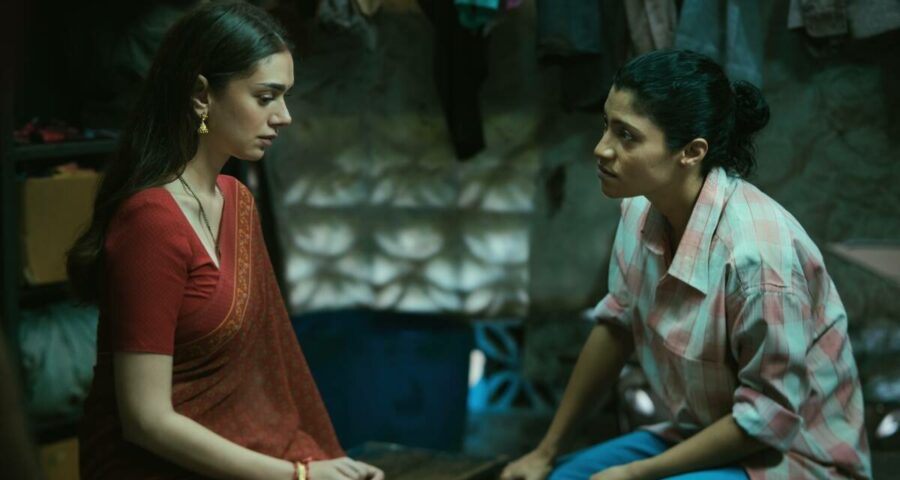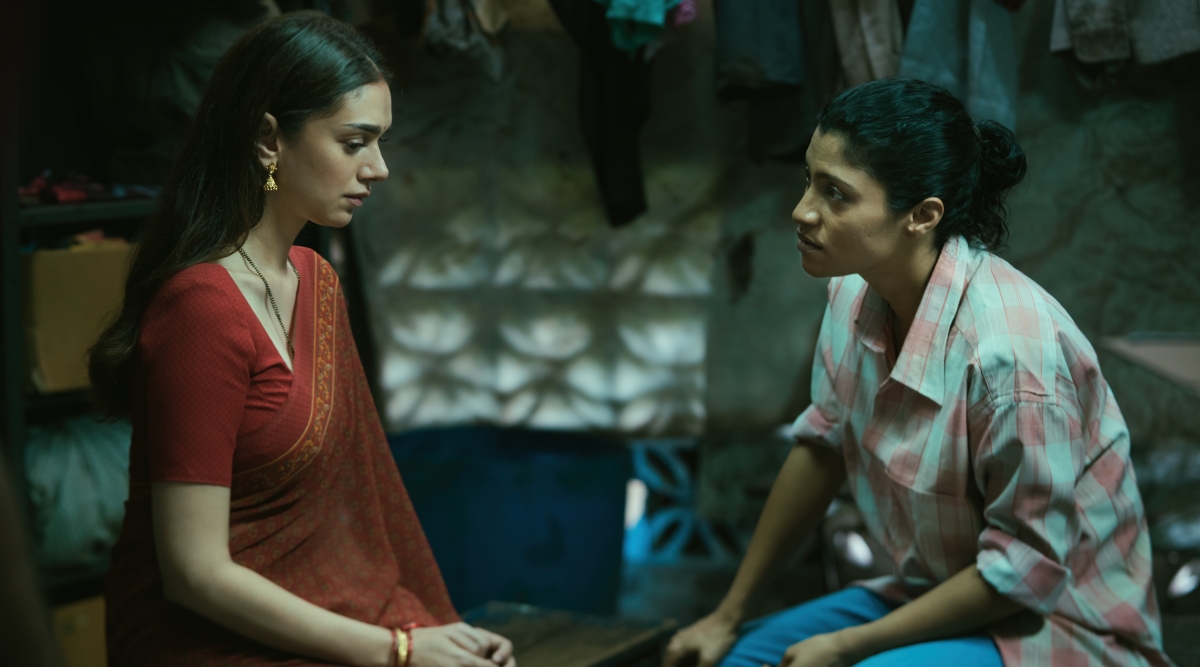Ajeeb Daastaans movie review: The best film comes from Neeraj Ghaywan, one of the most exciting young voices working in Bollywood today, and Kayoze Irani.
Get email alerts for your favourite author. Sign up here
Ajeeb Daastaans movie cast: Jaideep Ahlawat, Fatima Sana Shaikh, Armaan Ralhan, Abhishek Bannerjee, Nushrat Bharucha, Konkona Sensharma, Aditi Rao Hydari, Shefali Shah, Manav Kaul, Tota Roychoudhary
Ajeeb Daastaans movie directors: Shashank Khaitan, Raj Mehta, Neeraj Ghaywan, Kayoze Irani
Ajeeb Daastaans movie rating: 2.5 stars
The four short films in Netflix’s new anthology are predicated on one commonality — something strange this way comes. Predictably, though, the best film comes from Neeraj Ghaywan, one of the most exciting young voices working in Bollywood today, followed by the one from Kayoze Irani.
In ‘Geeli Pucchi’, Bharati Mondol (Konkona Sensharma) and Priya Sharma (Aditi Rao Hydari) are stapled together by happenstance. The former works on the floor of a factory and is patronisingly patted on the back for her skills as a ‘kaarigar’ and her ability to work alongside male colleagues, by, who else, a male supervisor. The latter, all delicate, sari-clad, feminine, is the new data entry operator, a position Bharati has been eyeing.
The contrast between the two couldn’t be stronger, and yet they have something in common, a sharp awareness of the other with a strange mix of kinship and resentment, which converts a sloppy kiss (geeli pucchi) into a sexual tingle. The two slide into an uneasy dance as caste and class comes into contention. If you don’t have a ‘Bannerjee, Mishra or Sharma’ in your name, you are the lowest of the low on the totem pole, the space a Dalit Mondol is forced to occupy by the accident of her birth.
The use of ‘hum jaise log’ for women who like each other gives you pause. Why not be more specific? Is it because the looser definition gives Priya a little wiggle room, allowing her to figure her way around suffocating marriage and motherhood? Or to close her eyes to her real sexual identity? Is the use of the word ‘queer’ confined strictly to a particular class?
For the first time, Hydari’s beauty has not been allowed to overpower her character; Ghaywan has given her a complex role with shifting meters, and Hydari goes from hesitance to playfulness to a selfish not-very-niceness with conviction. Sensharma does a fantastic job as the distinctly butch Bharati, whose only tender relationship up till then has been with another woman, and has been left to fend for herself. And a Mondol gaining an upper hand over a Sharma? Nice. But where is this film set? Was there a town mentioned, or did I miss it?
On a sort of similar note in a very different Mumbai-based film, Kayoze Irani’s ‘Ankahi’ has another set of actors who open up unexpected spaces in their lives through a chance encounter.
Shefali Shah, unhappy wife and mum, comes across a photographer, played by Manav Kaul. Instantly, there’s a connection: in a wonderful sequence, we see a couple of strangers who find that they can laugh together, at the same joke. Now, that’s a powerful thing, and many relationships have been cemented on that one thing. Laughter leads to passion. What now?
You wonder if Shah’s husband (Tota Roychoudhary) works so hard only so he is never seen to be free enough to have to communicate with their daughter, who can’t hear well. Sign language is for people who have a lot of time to waste; ‘just leave me alone’, is his mantra. It looks as if he might just be taken up on his word, when a switch is thrown. That switcheroo, from a-distant-to-caring-pa, is jarringly sudden. What lifts the segment is the possibility of two people discovering love anew, of the joy of throwing-back-your-head-and-laughing. Shah, as usual, is lovely. So is Kaul, who is proving to be a consistently good lover (remember him with Vidya Balan in Tumhari Sulu).
‘Raj Mehta’s ‘Khilauna’ focuses on people who help us live our middle-class lives with comfort, how we prey upon them, and the consequences of what happens when occasionally they try and get the better of us. People like a pretty young maid (Nushrrat Bharucha), and a young man (Abhishek Banerjee) who has a makeshift ironing ‘gumti’ are invariably outside looking in: how do they feel when they walk inside our plush homes, which they swab and clean, and then go back to their sad dwellings, where power cuts are the norm? How do they feel when a powerful local guy puts the moves on the young woman, where she has to put out if she wants something that’s rightfully hers?
There’s something a little too constructed about this short story. Bharucha’s character knows how to parlay her looks to get what she wants, and who works as a ‘mehri’ (a word I haven’t heard in a long time) so that she can put her little sister through school. She is okay to use her flirtatious ways to get her foot into the door; if the man of the house gets fresh, what then? Bharucha is vivid, but the effort shows. Not Banerjee, who is as natural here as he has been before.
This same feeling of construction takes away from Shashank Khaitan’s ‘Majnu’. Jaideep Ahlawait never really feels as if he is at home as a wealthy Barabanki landowner, whose marriage of convenience to a beautiful woman (Fatima Sana Shaikh) has left both feeling unloved and unsatisfied. The entrance of a handsome young man (Ralhan) acts as a disruptor. Illicit passion flares up, and old hurts come tumbling out.
There are conclaves in East UP which still feel as if they belong to the previous century where feudalism ruled, and you could order people around at will. The use of specific names of places like Barabanki and Ballia immediately grounds the tale, but the inclusion of dialogues meant to raise a laugh, or twists which feel bunged in, and hurried contrivances, make you unable to buy this tale of curdled love, sex and dhoka.
Source: Read Full Article








